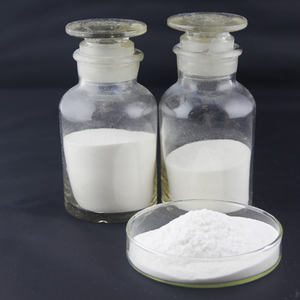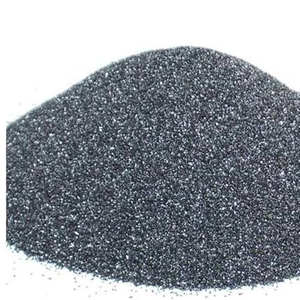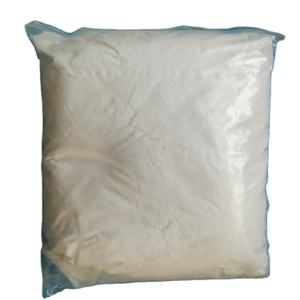Professional and high-quality metal alloys, ceramic products and concrete additives | RBOSCHCO
PRODUCT PARAMETERS
Description
| BABSA Branched Alkyl Benzene Sulfonic Acid Properties | |
| Other Names | N/A |
| CAS No. | 68411-32-5 |
| Compound Formula | R-C6H4SO3H |
| Molecular Weight | N/A |
| Appearance | NA |
| Melting Point | N/A |
| Boiling Point | N/A |
| Density | N/A |
| Solubility in H2O | N/A |
| Exact Mass | N/A |
| BABSA Branched Alkyl Benzene Sulfonic Acid Health & Safety Information | |
| Signal Word | N/A |
| Hazard Statements | N/A |
| Hazard Codes | N/A |
| Risk Codes | N/A |
| Safety Statements | N/A |
| Transport Information | N/A |
(BABSA Branched Alkyl Benzene Sulfonic Acid CAS 68411-32-5)
Overview of BABSA Branched Alkyl Benzene Sulfonic Acid
BABSA, also known as Branched Alkyl Benzene Sulfonic Acid, is a surfactant with a specific chemical structure. The combination of branched alkyl groups and benzenesulfonic acid groups in its molecular structure endows it with unique physical and chemical properties. BABSA has a wide range of applications in various fields, including detergents, wetting agents, emulsifiers, and dispersants. Its branched chain structure enhances its stability and surface activity, enabling BABSA to perform excellently in various chemical reactions. At the same time, BABSA also has good biocompatibility and environmental friendliness, meeting the needs of modern industry for green, efficient, and safe.
Characteristic of BABSA Branched Alkyl Benzene Sulfonic Acid
Unique molecular structure: The molecular structure of BABSA contains branched alkyl and benzenesulfonic acid groups. This structure endows BABSA with unique physical and chemical properties, such as good solubility and surface activity.
Excellent surface activity: Due to the benzenesulfonic acid groups in the molecule, BABSA has excellent wetting, permeation, and emulsifying abilities. This makes it widely used in fields such as detergents, emulsifiers, dispersants, etc.
Good biodegradability: The branched alkyl structure of BABSA makes it easily degraded by microorganisms, thereby reducing environmental pollution. This characteristic makes BABSA of great significance in the development of environmentally friendly chemicals.
Thermal and chemical stability: BABSA exhibits good stability over a wide temperature range and can resist the erosion of various chemical substances. This allows it to maintain good performance even in high temperature or strong acid-base environments.
Environmentally friendly: Compared to some traditional surfactants, BABSA has better biodegradability and lower toxicity, making it more environmentally friendly.
Technical Parameter of BABSA Branched Alkyl Benzene Sulfonic Acid
|
Product Name |
Short Name |
Purity |
PH |
Odor |
Appearance |
|
Branched Alkyl Benzene Sulfonic Acid |
BABSA |
95% |
NA |
Slight characteristic odor |
Brown liquid |
Application of BABSA Branched Alkyl Benzene Sulfonic Acid
Detergents and cleaning agents:
BABSA has excellent wetting, penetrating, and emulsifying properties, and is therefore often used as the main component of detergents and cleaning agents.
In household and industrial cleaning agents, BABSA can improve cleaning efficiency by removing grease, stains, and other stubborn dirt.

BABSA used as a detergent and cleaner
Personal care products:
BABSA is also widely used in personal care products such as shampoo, shower gel, soap, etc.
It can provide good foam and cleaning effect, while maintaining the gentleness of the product and not irritating the skin.

Using BABSA as a personal care product
Textile industry:
In the textile industry, BABSA is used as a pre-treatment agent, wetting agent, and dyeing assistant for textiles.
It can improve the dispersibility and permeability of dyes, making dyeing more uniform and improving the quality of textiles.

BABSA is used in the textile industry
Oil and Gas Industry:
In the process of oil and gas extraction, BABSA can be used as an additive in drilling fluids to improve drilling efficiency.
It can also be used for the preparation of oilfield chemicals, such as demulsifiers, anti scaling agents, etc.

BABSA is used in the oil and gas industry
Metal processing and surface treatment:
BABSA can serve as a component of cleaning agents, rust inhibitors, and lubricants in metal processing and surface treatment processes.
It can remove oil stains and oxides from metal surfaces, keeping them clean and shiny.

BABSA for metal processing and surface treatment
Paper industry:
In the papermaking process, BABSA can serve as a wetting agent, dispersant, and softener for paper.
It can improve the quality of paper, making it softer, smoother, and easier to print.

BABSA Used in the Paper Industry
Agriculture and Horticulture:
In the fields of agriculture and horticulture, BABSA can be used as an adjuvant for pesticides and fertilizers, improving their dispersion and permeability.
It can also be used for soil improvement and regulation of plant growth.

Company Profile
NANOTRUN(www.rboschco.com) is a trusted global chemical material supplier & manufacturer with over 12-year-experience in providing super high-quality chemicals and nanomaterials, including boride powder, nitride powder, graphite powder, sulfide powder, 3D printing powder, etc.The company has a professional technical department and Quality Supervision Department, a well-equipped laboratory, and equipped with advanced testing equipment and after-sales customer service center.If you are looking for high-quality BABSA Branched Alkyl Benzene Sulfonic Acid, please feel free to contact us or click on the needed products to send an inquiry.
Payment Term
L/C, T/T, Western Union, Paypal, Credit Card etc.

Shipment Term
By sea, by air, by express, as customers request.
Storage Conditions:
Temperature control: BABSA should be stored at room temperature to avoid high or low temperatures. Excessive temperature may cause product decomposition or deterioration, while too low temperature may cause product crystallization or solidification.
Humidity control: Due to the hydrophilicity of BABSA, high humidity environments may cause it to absorb moisture and undergo hydrolysis reactions. Therefore, the storage environment should be kept dry and the relative humidity should be controlled at a lower level.
Light protection: BABSA is sensitive to light and prolonged exposure to sunlight may cause color changes or performance degradation. Therefore, it should be ensured that the storage container is dark or dark colored containers are used to reduce the impact of light.
Packaging and containers: BABSA should be stored in well sealed containers to prevent the entry of air, moisture, and other impurities. Usually, containers made of inert materials such as polyethylene or polypropylene are used for storage.
Avoiding contamination: BABSA should avoid contact with other chemicals or impurities during storage to prevent contamination and performance degradation.
Storage period: Although BABSA has longer stability, there are still recommended storage periods. Using it within this period can ensure the performance and quality of the product.
Regular inspection and flipping: BABSA that remains stationary for a long time may cause local clumping or sedimentation. Therefore, it is recommended to regularly inspect and flip the stored BABSA to ensure its uniformity and fluidity.
Safety signs: There should be clear safety signs in the storage area, indicating the name of the product, storage conditions, hazards, and emergency measures, so as to quickly take response measures in emergency situations.
FAQ
Q1
What are the unique performance advantages of BABSA as a surfactant?
Re:As a surfactant, BABSA's unique performance advantages are mainly reflected in the following aspects: Firstly, BABSA has excellent wetting and emulsifying abilities, which can effectively reduce the surface tension of water, making oil-water mixtures easier to mix and disperse. Secondly, BABSA has good stability and alkali resistance, and can maintain settled performance over a wide pH range. In addition, BABSA also has good biodegradability and is environmentally friendly.
Q2
What are the differences between BABSA and other types of surfactants?
Re:Compared with other types of surfactants, the main differences of BABSA are reflected in its molecular structure and properties. The molecular structure of BABSA contains sodium branched alkylbenzenesulfonate, which gives its molecules greater steric hindrance and better stability. In addition, BABSA has strong wetting and emulsifying abilities, and can achieve good results at lower concentrations. Meanwhile, BABSA has good biodegradability and will not cause long-term pollution to the environment.
Q3
How to optimize the production process of BABSA to improve efficiency and reduce costs?
Re:In order to optimize the production process of BABSA to improve efficiency and reduce costs, we can start from the following aspects: first, optimize the selection and ratio of raw materials, select high-quality raw materials, and adjust the ratio reasonably to improve reaction rate and product purity. Secondly, improve production processes and equipment, adopt advanced production technologies and equipment, enhance production automation, reduce manual intervention, and improve production efficiency. In addition, strengthen energy consumption and waste management in the production process, dilute energy consumption and waste emissions, and lower production costs.
Q4
How to ensure the quality and purity of BABSA in practical applications?
Re:In practical applications, ensuring the quality and purity of BABSA is crucial. Firstly, reputable suppliers should be selected to ensure that the purchased BABSA meets quality standards. Secondly, establish a strict quality inspection system and conduct comprehensive quality inspections on the purchased BABSA, including appearance, color, content and other indicators, to ensure that it meets the requirements for use.
Q5
What are the application prospects of BABSA in cosmetics and personal care products?
Re:BABSA has broad application prospects in cosmetics and personal care products. Due to its excellent wetting and emulsifying ability, BABSA can be used as an important ingredient in the preparation of products such as shampoo, shower gel, and cleanser. Meanwhile, the biodegradability and stability of BABSA make it an ideal choice for environmentally friendly cosmetics and personal care products.







